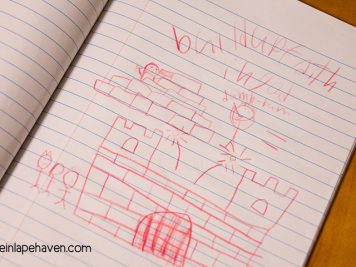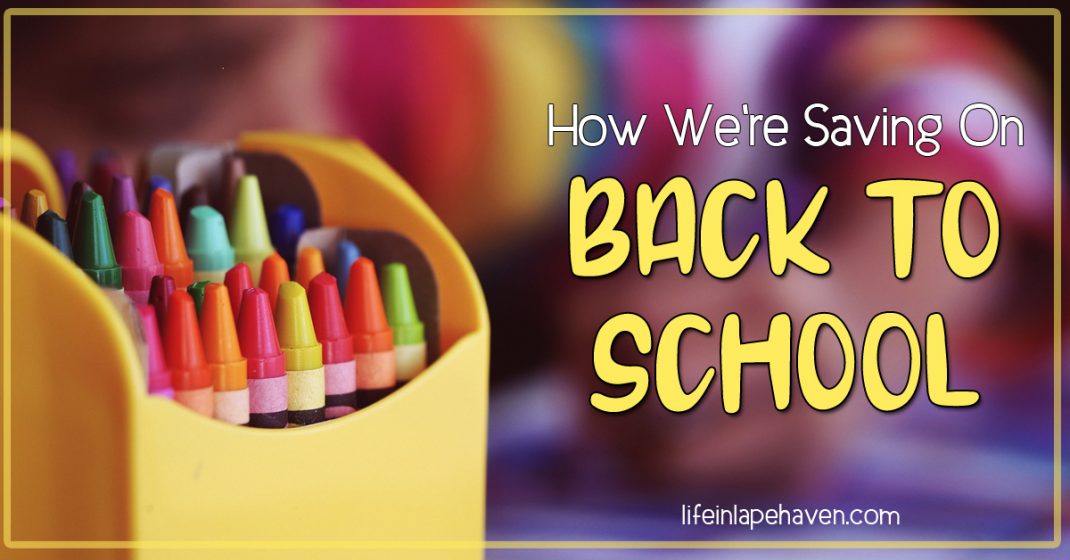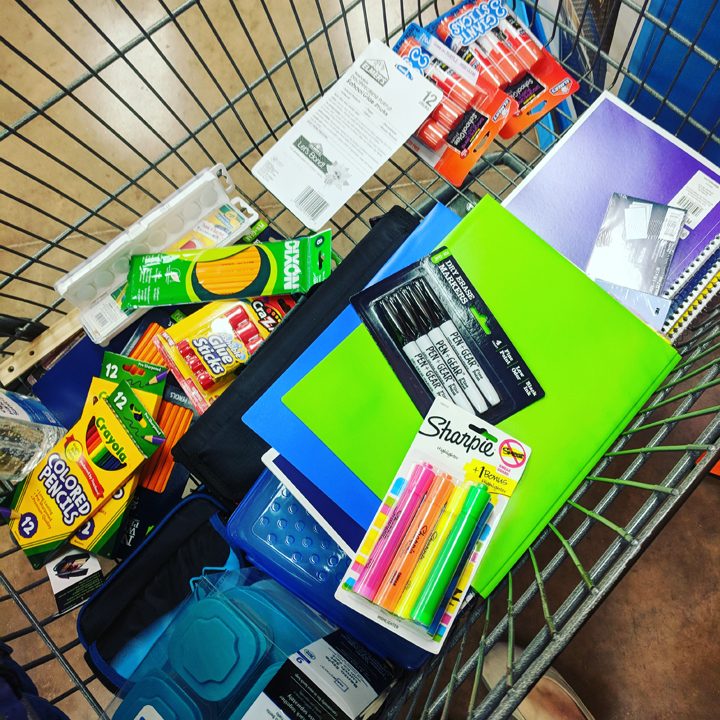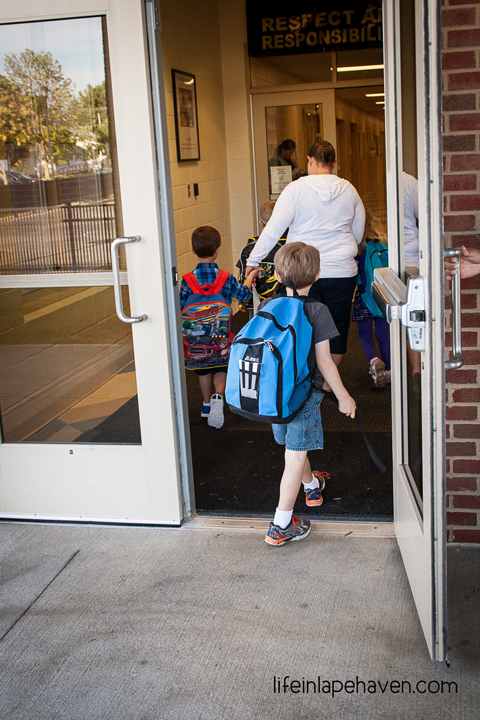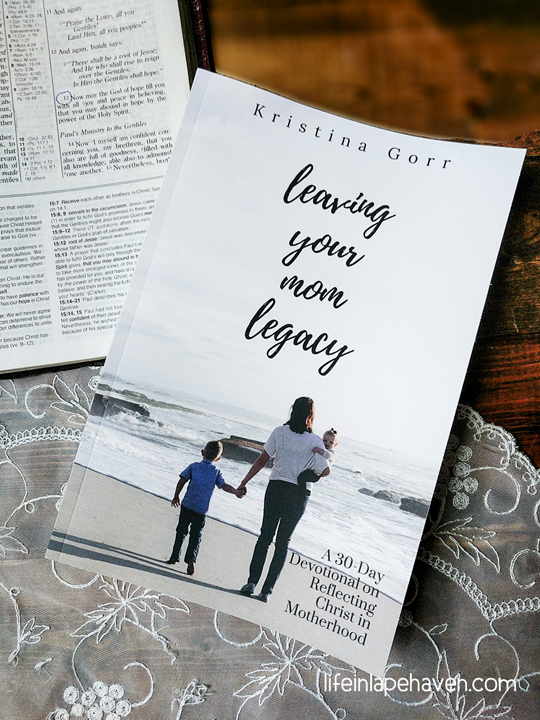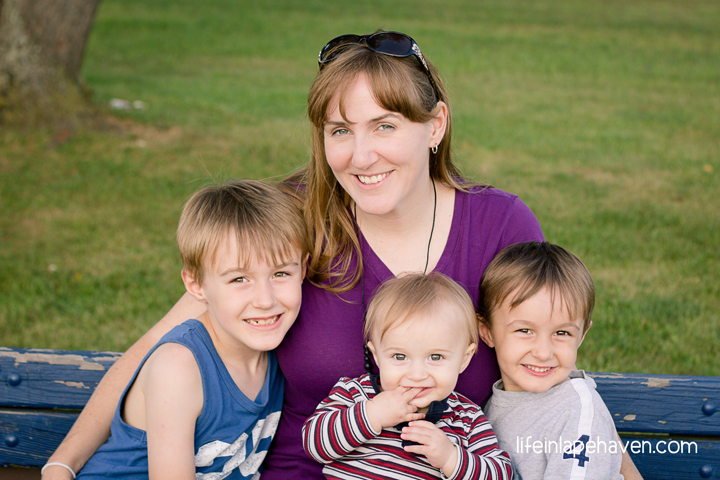& Tips for Your Family Bible Time
Recently my boys had nearly a week off school, and they surprised me a bit by falling right back into the routine I’d started with them over the summer of doing a mini Bible study and journaling time at breakfast. In fact, they actually ASKED to do it, and of course I wasn’t going to say, “No.”
Because we all want our kids to WANT to read the Bible, right?
But I know that sometimes just the thought of doing devotions or reading the Bible with your kids can seem overwhelming. We realize it’s important to lay a good Godly foundation for our children, and we really want to do this part of our parenting job well, but getting them to pay attention, knowing what to read, thinking “am I doing it right?” or “am I doing enough?” – it can be daunting and immediately discouraging.
I think that is why I was surprised that my boys were asking about doing our morning Bible time. To me, my efforts this summer to spend time in the Bible with our boys felt unorganized and nowhere near the thoughtfully planned out and neatly executed ideal I’d had in my head.
Life, however, said, “You barely have time to get a shower, let alone write out a 2-month daily Bible study for your boys right now.” Maybe someday…but not yet.
So instead of waiting until I had time to create my fabulous summer Bible plan, we used a very simple approach, and I just started doing it. (And if you are looking for tips, that’s your first one!)
(This post contains affiliate links, which means that at no additional cost to you, I may receive a small commission when you use those links. For more details, see my full disclosure.)
START SOMEWHERE
Since our boys were little ones, we’ve been reading the Bible or at least one of their little storybook type Bibles, to them at bedtime. So we’d technically already started somewhere.
For our summer, though, I wanted to do a little in the mornings since that would give us more focused time.
I also grabbed a few composition notebooks one day at the store, and voila – Bible journals! No, journals are not at all necessary, but for me, it was a way to say, “Yes, we are doing this. This is one way we will set aside this time.”
Plus, both of our older boys love drawing, so this was also a way to get them to focus that interest on Jesus for a bit.
The next morning, I brought my Bible and the notebooks to the breakfast table. Even though I didn’t have a set plan, I picked a set of verses, read it out loud to the boys, talked about it with them, and then had them choose one of the verses that I’d read to write or draw about in their journal. (I figured if a verse stood out to them, there was probably a reason).
- Our simple Bible journals…Mine became Isaiah’s very quickly.
- Josiah is still learning to read and write, so I wrote a verse, and he drew it out.
- Elijah’s rendition of the story of Nehemiah.
That was it.
For our morning time or nightly reading, that’s how we do it. Brad or I read a section of scripture (a Bible story, a Psalm, or a random verse), and we talk with the boys about what it means, how it applies to us, and how it fits with other things they’ve already learned. We also pray about it, that His Word would be impactful, changing us and helping us to be more like Him.
There was no particular theme or guideline really for our summer. Sometimes I found a verse or story to answer a question they had or in response to a situation or because they just wanted to read it. Other than that, it was whatever I had on my heart that day.
Some days we had more time to read and draw/write, and others we only spent a few minutes. It’s not so much about daily quantity as it is about really letting at least one verse or main idea get into their hearts.
And of course, once they started back to school, mornings were a bit too crazy. So we went back to doing more of our discussion and longer readings in the evening at bedtime, minus the journaling time after.
It doesn’t matter when you do it, but again, just that you do something, start somewhere.
GETTING THEM TO PAY ATTENTION
KEEP IT SIMPLE, BUT NOT SUGAR-COATED
While I’d love to dive deep into all the symbolism and connections intertwined within the pages of the Bible with my guys, right now, some of that is way over their heads.
We need to keep it somewhat simple, something they can understand easier, but also allow room for them to be challenged and discover new things.
So, while we’ve kind of steered clear of Leviticus and Revelations for the present, we don’t just stick with Noah’s Ark or Daniel in the lion’s den. Nor do we edit everything out, within age appropriateness (Song of Solomon, however, will be waiting a little longer, too :)).
I remember when Elijah first read about how David cut off Goliath’s head after their infamous match. He said, “They never told us that at church!” as if we’d been holding out on him.
I said, “Well, sometimes they have to be careful about the preschoolers and younger kids.”
But he’s old enough now that that detail fascinates him and makes him want to dig into God’s word more.
And it’s not just the battles and warriors that draw him – although being a boy, he loves those – we also had a really good discussion about God’s holiness and the importance of obedience after reading about how Uzzah died when he touched the Ark of the Covenant, even though it seemed he was being helpful (2 Samuel 6). It’s not an easy thing to explain, maybe, but it is foundational for them to understand and think about.
Those details and discussions are why we don’t always read entire chapters or passages or stick to a schedule for our day’s reading. Sometimes one verse needs explained or a word like “righteousness” needs defined.
And if you don’t know the answer for them, be honest. Then look it up together and pray about it.
Again, it’s about getting the Word into their hearts and giving God room to move in them, not just following a checklist.
Don’t be afraid to broach the big topics that are within your child’s capability to at least start to grasp, and also don’t worry if they completely understand everything. I daresay, we adults don’t understand it all yet, either.
EXPECT THEM TO BE CHILDREN
Of course, even if you’re reading the most entertaining or well-loved Bible story to your kids, keep in mind that they are still children. Expect shorter attention spans (another reason for reading less at a time) and fidgeting.
When you’re reading, read with enthusiasm and stop often during longer passages to make sure they are following and understanding. Pay attention to the words you’re using, too. “Sanctification” might need some clarification. (Again, it’s okay to Google it if you need help! 😉 )
I’ve also found that it helps my boys to have something small to do, like coloring or Legos or even eating breakfast, while they listen to the reading. (There have actually been studies done showing that fidgeting helps with concentration.)
So give them some leeway. Reading the Bible doesn’t have to be a somber, hushed time. If they are being respectful and attentive in their attitudes, allow them to wiggle, giggle, and ask questions.
KNOWING WHAT TO READ
Sure, I said that we didn’t use a plan for our devotion time this summer, but that doesn’t mean that we don’t ever use a devotional book, guide, or that we stick to one Bible for all of our reading.
When they are very young, we read from a children’s story Bible, even a board book, or use the YouVersion Bible app for Kids (Isaiah, my nearly-2-year-old has been getting into this and wanting to read “ba-ba” – Bible – before his bedtime).
For older toddlers and preschool-age, I also really love Steadfast Family’s Play Through the Bible, which gives you creative ways – crafts, snacks, games – to talk about the same Bible story throughout the day or week in a way your little one will grab onto.
Once they get a little older, you can upgrade to a “big kid’s” Bible (Elijah LOVES his Action Bible & his Kids Study Bible), or even go straight from your own Bible. We’ve used Elijah’s study Bible more recently so that they get those extra details I mentioned before. We’ve been working our way through some of the “history” books in the Old Testament, and it’s been full of great lessons and take-aways as well as plenty of action and adventure for our boys.
In addition, we’ve been reading Priscilla Shirer’s Unseen devotional that goes along with her awesome children’s fiction series, The Prince Warriors, that our whole family loves. Both the devotional and books are all about the armor of God and spiritual warfare.
I’m also looking forward to starting Our 24 Family Ways by Clay & Sally Clarkson with our boys in the new year.
REPETITION
Since we were already in the habit of reading something from the Bible at bedtime, during the summer, for our nighttime reading, I tended to reiterate what we’d talked about in the mornings, or I’d have my boys remind us what we’d studied earlier in the day.
Because just like everything that our children learn from day one, repetition is huge in helping them learn, remember, and apply what they’ve learned.
So there’s nothing wrong with reading the story of King Josiah or Elijah on Mount Carmel (favorites with our boys for obvious reasons) again…and again…and again. Just as God does with us, our kids can notice new things each time they read His Word.
And of course, memorizing verses through repetition is great for them (and us!)
AM I DOING ENOUGH & DOING IT RIGHT?
Perhaps the best lesson I learned from seeing how eager my boys were to do their morning devotions after thinking I was just “doing something” instead of my “ideal” was this: God’s Word can stand on its own. It doesn’t need all my embellishments and fanfare to be effective and life-changing.
So it isn’t dependent on my eloquence or even me totally understanding everything there is to know about the Bible.
My boys still remember the verses or stories if I mention them. They’ve both shown growth in their walk with God. Somehow, despite my kind of winging it at times, God’s Word was and is being hidden in my children’s hearts and taking root.
Is it okay to give my kids activities and organized lessons to help them understand and remember a scripture? Sure. Does having a plan ensure that you cover a lot more of the Bible with your children? Probably.
But even without those things, God can reach our children’s hearts when we just make the time to bring them His Words.
(Of course, we should be living it out for them daily, as well, as “living epistles” who show them the value of time with God by spending time with Him ourselves.)
Our responsibility is setting the table, if you will. Opening the Bible and sharing it with them. Giving them a chance to taste and see just how good God is. Planting the seeds and praying that He brings the harvest.
If you’re doing that, it’s enough. You’re doing it right.
Because it’s God and His Word alone that stirs the hunger and feeds our spirits, even in the youngest hearts.
Does your family do “devotional” time together? What are some of your favorite resources?
Get more ideas & encouragement from this real-life mom as I experience God’s faithfulness through the joy and chaos of motherhood.
Join my email list!
YOU MAY ALSO LIKE:
How God Can Use Your Faithfulness in Motherhood
A Fun Way to Teach Your Children about God’s Great Commission
Growing Up on Manna: How Your Struggles Can Build a Legacy of Faith for Your Children






